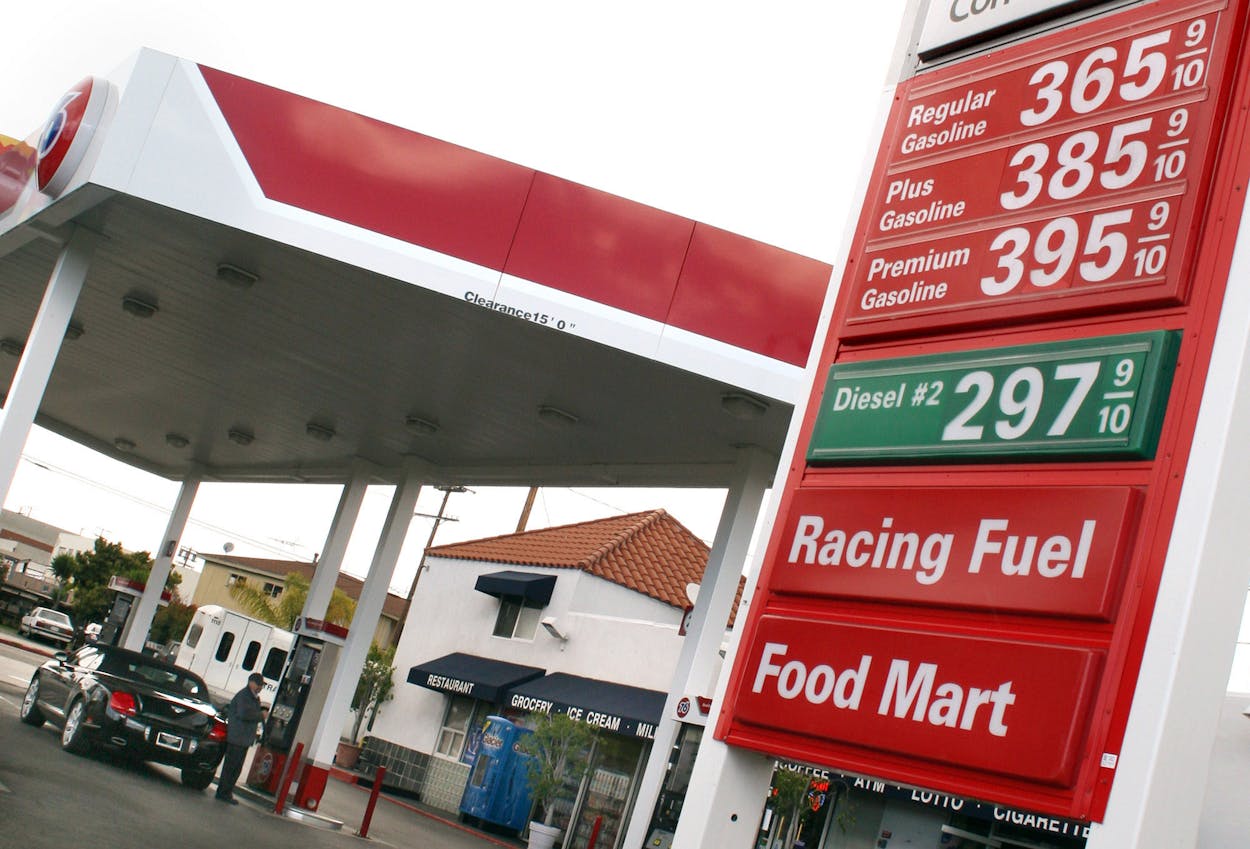For the oil patch producers looking for higher prices as an incentive for drilling, an import tax proposed by U.S. House Republicans would be good news. But for a family looking for a cheap driving vacation, the tax could push up the price of gasoline at the pump by as much as 40 cents per gallon.
Corporate tax reform and various tax proposals were a large part of President Donald Trump’s campaign, and have been discussed with more frequency and fervor since he took office. Much has been made of the twenty-percent tax proposal on imports from Mexico to pay for the wall the President promised to build along the border, but the tax proposal that appears to have a bit more momentum is a “border adjustment” tax sponsored by U.S. Representative Kevin Brady (R-The Woodlands) and Speaker Paul Ryan. In their plan, they suggest a twenty-percent tax on all imports to pay for cutting the corporate income tax rate from 35 percent to 20 percent. (There would be no tax on exports.) Ultimately, this could increase profits for companies and, according to independent studies, bring in around $1 trillion. The idea behind the proposal is to give U.S. companies an incentive to keep their factories in the United States.
President Trump is discussing the idea with House leadership, but not everyone supports the proposal. Retailers are putting together a coalition to oppose it, and there could be effects on refineries and the cost of imported crude. A recent report by Goldman Sachs estimated that a 20 percent tax would add $30 billion to the annual import cost of refineries, based on an assumption of a crude oil price of $53 per barrel on imports of 7.9 million barrels a day, according to Reuters. And, because refineries have no intention of eating the higher cost of crude oil imports, “The refiners (are) going to have to be able to pass any incremental cost on to the consumer,” said Gary Heminger, chairman, president and CEO of Marathon Petroleum Corporation. “I am very confident that we will be able to do that just as we did when crude prices were $100 to $147. We passed the price on to the consumer.”
Although Marathon is Ohio-based, its Galveston Bay refinery handles 459,000 barrels of crude a day. The Borger Refinery of Phillips 66 handles 146,000 barrels of crude a day, and its Sweeny refinery processes 247,000 barrels. The Corpus Christi Complex of Flint Hills Resources, owned by Koch Industries, refines 290,000 barrels a day. All told, Texas refineries process more than 5.1 million barrels of crude oil per day.
Charles and David Koch oppose the import tax. This isn’t terribly surprising. The Kochs are major Republican donors, but they’re also low-tax libertarians. In a statement, the family-owned company said they favor “comprehensive tax reform,” but:
[W]e worry that the border-adjusted tax provision proposed in the House Republican blueprint would adversely impact American consumers by forcing them to pay higher prices on products produced in and goods imported to the U.S. that they use every single day. While companies like Koch who manufacture and produce many products domestically would greatly benefit in the short-term, the long-term consequences to the economy and the American consumer could be devastating.
Greg Garland, CEO of Phillips 66, in his own conference call to analysts on Friday, predicted the tax would cause gasoline prices to go up by 30 cents to 40 cents at the pump:
If just border tax goes through in the form as we understand it, we would pay more taxes on the refining business at twenty percent than we pay at 35 percent today, so that’s a negative. We think crude prices go up 25 percent. We think gasoline prices go up $0.30 – $0.40 a gallon in that scenario.
On the upside, Garland said higher prices likely would promote increased domestic production. He said the tax also would be good for the company’s chemical production because Phillips exports between fifteen percent and 25 percent of the ethylene produced in the United States. “So from an export perspective, the border tax adjustment would be good for the chemicals business.”






